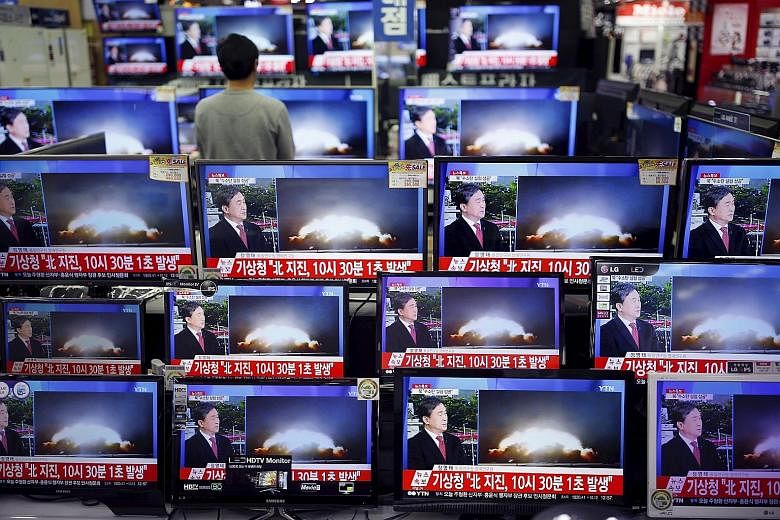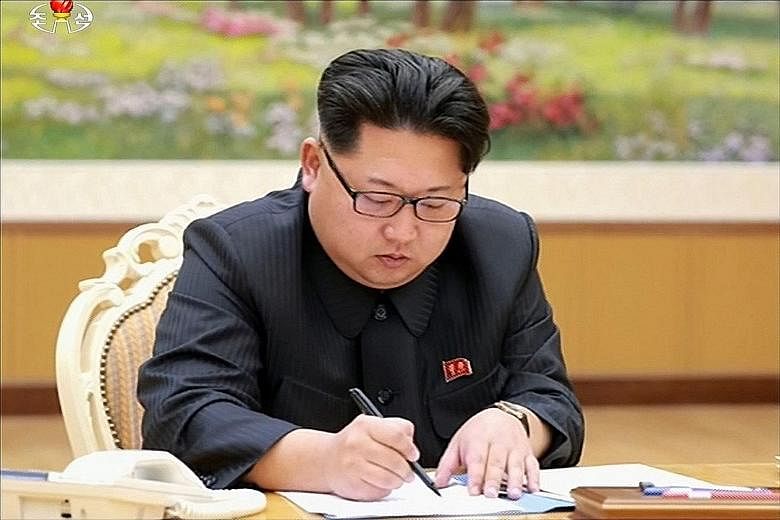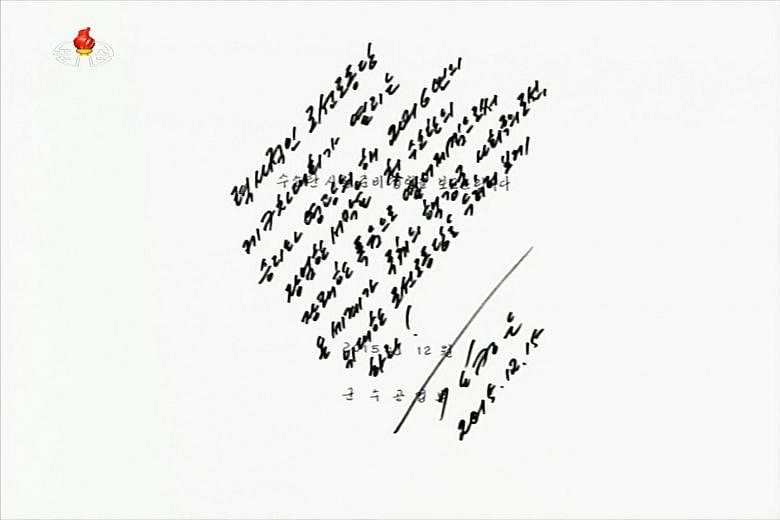South Korea has raised its military alert and increased surveillance of communist North Korea after the Kim Jong Un regime claimed to have conducted its first successful hydrogen bomb test yesterday.
The North's announcement, which came after a 5.1-magnitude tremor was detected near its nuclear test site in the north-eastern region, was immediately condemned by the international community amid doubts about its credibility.
South Korean President Park Geun Hye vowed to join hands with the global community to punish Pyongyang for violating United Nations Security Council resolutions.
It was the North's fourth nuclear test since 2006, and the second since Mr Kim assumed power in 2011.

-
Singapore 'gravely concerned'
-
The Ministry of Foreign Affairs has released a statement regarding North Korea's nuclear test: "Singapore is gravely concerned by the Democratic People's Republic of Korea's (DPRK) announcement that it has conducted a nuclear test on 6 January 2016. This is a dangerous and provocative act with serious implications on the peace and stability of the region and the DPRK itself. It is also a clear breach of the relevant UN Security Council resolutions. We strongly call upon the DPRK to desist from further such actions, and reiterate our long-standing call for the DPRK to abide by its international obligations and commitments. Singapore intends to make its views known to the DPRK through its Ambassador in Singapore."
Calling the test a "grave provocation" and a challenge to international peace and stability, Ms Park said South Korea will work closely with the international community to make sure that North Korea pays a corresponding price, in the form of strong sanctions.
South Korea's Defence Ministry said it was strengthening vigilance and surveillance of the North and was in touch with American forces in South Korea, where more than 28,500 United States troops are stationed.
North Korea announced on state- owned Korean Central Television that it had "successfully conducted" its first hydrogen bomb test at 10am local time (9.30am Singapore time), using its own resources and technology. It said the test was a "self-defence measure against bullying from hostile forces led by the US".
South Korea's National Intelligence Service cast doubt on Pyongyang's claim, with lawmaker Lee Cheol Woo saying after a closed-door meeting with the spy agency that "there is a possibility" it was not a hydrogen bomb.
He told reporters the assessment was based on the bomb's yield, which should be over 100 kilotonnes. But the yield was only 6 kilotonnes, less than that of the last nuclear device tested in 2013, which was 7.9 kilotonnes.
News of the nuclear test came as a surprise to many observers as Mr Kim, in his recent New Year's address, had chosen to focus on economic development instead of nuclear ambitions.
For Pyongyang to conduct a nuclear test now could mean that its domestic economy is doing well enough to withstand even more sanctions, said international relations professor Park Ihn Hwi of Ewha Womans University.
"Whether it is a real hydrogen bomb or not doesn't matter. The significant fact is that they have progressed in their nuclear technology," said Prof Park.
Experts also said Mr Kim could have chosen to conduct the nuclear test now to exert his authority and military power ahead of his first party congress due in May.
But this comes at the expense of ties with South Korea, China and Japan, said Associate Professor John Delury of Yonsei University Graduate School of International Studies.
"Kim Jong Un is no doubt aware of the diplomatic fallout, but has evidently decided the benefits to his consolidation of power and national security outweigh those costs," he said.



